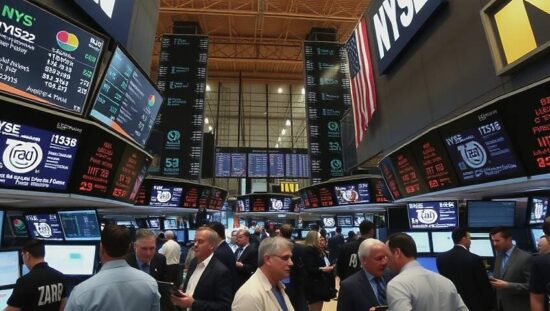The Dax index opened the trading day on Wednesday in positive territory. By 9:30 AM, the benchmark index reached approximately 24,300 points, representing a 0.4% increase compared to the previous day’s closing level. Deutsche Bank, Rheinmetall and RWE led the gains, while Adidas, Infineon and Volkswagen trailed at the end of the ranking.
Jochen Stanzl, Chief Market Analyst at CMC Markets, noted an atypical level of investor activity this year, leaving the index only slightly above its record high. “Seasonally, we would normally expect weaker market performance at this time”. He attributed the trend to ongoing capital shifts from the United States to Europe and Germany, driven by a desire to mitigate uncertainty surrounding US trade policies. “The ongoing trade disputes in the US remain a source of insecurity, exemplified by the newly proposed 50% import tariff on copper.
Stanzl further suggested that the German economy is partially offsetting these uncertainties, buoyed by both European domestic economic activity and a potential economic recovery in East Asia. Ideally, Germany could avoid a recession this year and return to growth in the following year. “The Dax is already anticipating this development, as investors consistently look three to six months into the future.
The Dax’s current price-to-earnings (P/E) ratio stands around 16. This places it at the higher end of its historical range since the mid-2000s (between 8 and 16), but still towards the lower end of the preceding two decades (between 16 and 33). According to Stanzl, any new investments now would require a fundamental re-evaluation of German equities to justify the current valuation.
The euro strengthened somewhat on Wednesday morning, trading at $1.1725, with the dollar fetching €0.8529.
Meanwhile, the oil price remained largely unchanged; a barrel of Brent North Sea crude cost $70.12 around 9:00 AM local time, a decrease of 3 cents compared to the end of the previous trading day.





